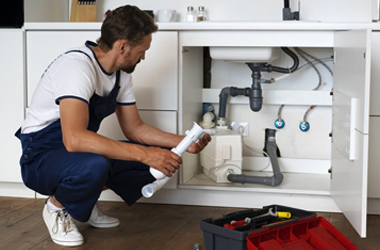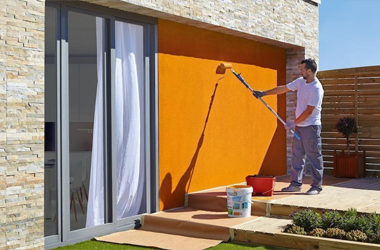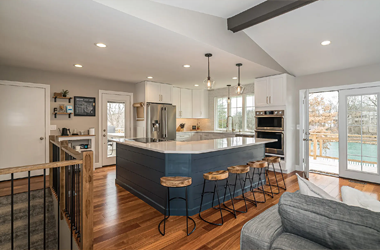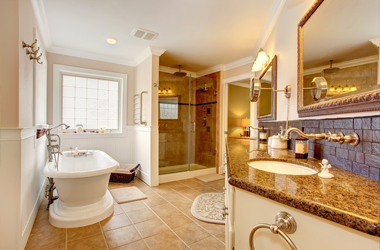A Home Office that Inspires: Painting Ideas for a Productive Workspace 2026
Ever find yourself feeling drained or distracted in your work from home setup? You’re not alone. As we move into 2026, the line between home and office has truly blurred, making the visual and psychological impact of our surroundings more important than ever. The right home office paint colors can be the simplest yet most powerful upgrade you make. Think about it: what if the color on your walls could actually help you focus better, feel calmer, and create new ideas? It’s not magic; it’s the science of how our environment influences our mind. So, if you’ve been wondering, “What are the best paint colors for home office spaces to boost my productivity?”, you’ve come to the right place. Let’s explore how to transform your four walls into a source of daily inspiration. Why Paint Color Matters in a Home Office So, how exactly does a simple paint color for home office walls make such a big difference? It all comes down to color psychology—a fancy term for how different hues directly talk to your brain. Think about it this way. Cool tones like serene blues and greens act like a mental chill pill. They lower your stress and are perfect for jobs that require deep concentration. On the other hand, warm tones like soft yellows or corals are like a cup of coffee for your creativity, gently energizing you and sparking innovative thoughts. Understanding this is the first step in learning how to design office space that truly works for you, not against you. Now that you see the ‘why,’ let’s get practical and figure out how to pick the perfect shade for your home office. How to Choose the Right Paint Color for Your Home Office Now that you know colors have “personalities,” how do you pick the one that’s right for your space and work? It’s not just about your favorite color; it’s about creating a functional environment. Let’s break it down into three simple steps. Ready to see these principles in action with some specific, trending shades? Top Home Office Paint Colors 2026 Ready to meet the stars of this year’s color palette? These home office paint colors in 2026 are all about creating spaces that are both personally uplifting and highly functional. Let’s explore some of the good paint colors for home office environments. Sage Green If your workday is packed with back-to-back video calls, sage green is your best bet on any given day. This soft, earthy hue reduces eye strain and promotes a calm, focused mindset. It’s like bringing a piece of a peaceful garden indoors, making it one of our top home office paint color suggestions for high-stress jobs. Deep Teal For those who ask, “What’s a color that’s both professional and inspiring?”, deep teal is the answer. It combines the focus-boosting power of blue with the inspiring energy of green. This color is perfect for creating a defined, sophisticated zone in an open-plan living area. Warm Terracotta Move over, cool grays. 2026 is all about warmth, and terracotta leads the way. This color is like a shot of espresso for your creativity, creating feelings of warmth, comfort, and optimism. It’s an excellent choice for artists, designers, or anyone in a creative slump. Sky Blue A classic for a reason, sky blue remains one of the most popular choices for home offices. It’s known for lowering heart rate and improving concentration, making it a safe and highly effective home office paint color. It works beautifully in rooms with natural light, giving you that airy, open feeling. Creative Home Office Paint Ideas to Elevate Your Space Now that you’ve seen the top colors, let’s talk about how to apply them in ways that are anything but basic. These creative home office paint ideas can transform your walls from a simple backdrop into a dynamic part of your workflow. The Accent Wall Instead of painting all four walls, choose one to highlight. This simple home office paint idea instantly creates a visual focal point behind your desk, perfect for Zoom calls and helping your brain switch into “work mode.” Color Drenching Ready to go all in? “Color drenching”, which is essentially painting your walls, trim, and even the ceiling the same color, creates an immersive, cocoon-like environment that reduces visual clutter. Color Blocking For a truly modern and energizing look, try color blocking. Use painter’s tape to create geometric shapes or bold sections of contrasting colors on one wall. This technique is great for stimulating creativity and is a great way to use multiple of your favorite shades without committing to a full wall. Smart Solutions for Compact Spaces If you’re working with a nook or a corner, your small home office paint ideas should focus on perception. Using a light, reflective color on the ceiling and the upper part of the walls can “lift” the space. Pair this with a vertical stripe or a light accent wall to draw the eye upward and make the area feel more spacious. DIY vs. Hiring Professional Painting Services So, you’ve fallen in love with a color and a technique. The big question now is: should you grab a brush yourself or call in the experts? There’s no right or wrong answer, only what’s right for you. Doing the job yourself can be a rewarding weekend project. It gives you full control and is easier on the wallet. If you have a simple, small room and a plan for a single flat color, a DIY approach is totally feasible. Just remember, achieving truly crisp lines, smooth finishes often requires a practiced hand and specialized painting tools. And this is exactly where professional painters truly shine. They don’t just apply paint; they bring an eye for detail and the expertise to execute more advanced designs flawlessly. They handle all the prep work and manage the cleanup, leaving you with a stunning, magazine-worthy result without the stress or the mess. This Year, Bring the Best Out of Your





